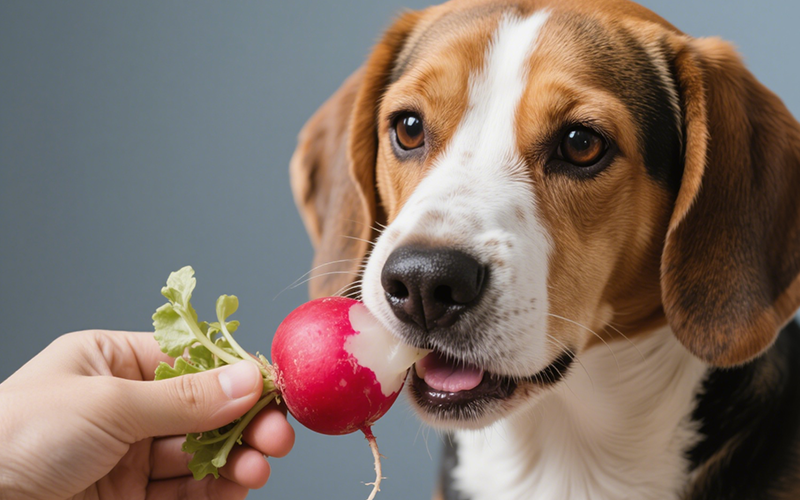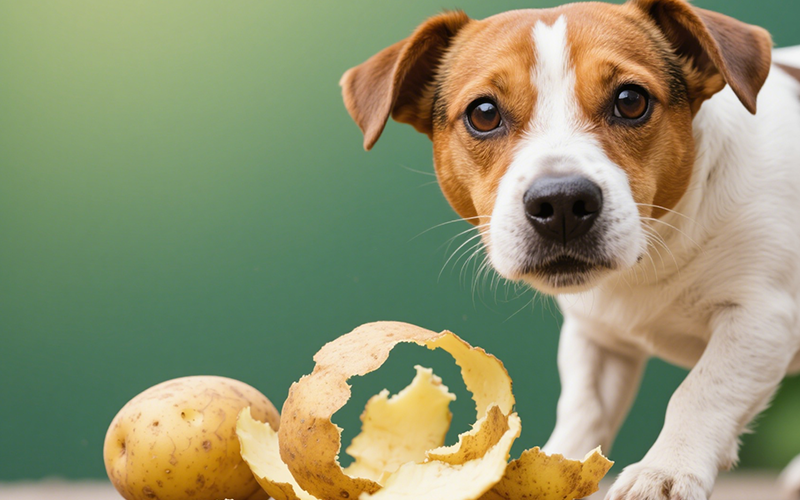Can Dogs Eat Mandarin Oranges? A Guide for Pet Owners
- 20 Mar 2025 09:51
Mandarin oranges are a sweet and tangy fruit that many people enjoy, but can dogs eat mandarin oranges? While mandarins are not inherently toxic to dogs, there are some important considerations before offering them to your furry friend. Let’s explore whether mandarins are safe for dogs and how to serve them properly. 🍊🐾

Are Mandarin Oranges Safe for Dogs? 🤔
Mandarin oranges, like other citrus fruits, are generally safe for dogs to eat in small amounts. However, there are some things to keep in mind:
Moderation is Key ⚖️
Mandarins are high in natural sugars and citric acid, which, when consumed in large quantities, can cause digestive upset, including diarrhea or stomach discomfort. Eating too many mandarins can also lead to weight gain due to the high sugar content. Offering small amounts as an occasional treat is usually fine, but don’t overdo it.Citrus Sensitivity 🍋
While some dogs tolerate citrus fruits better than others, many dogs have a low tolerance for citrus acidity. The acid in mandarins can cause an upset stomach or acid reflux in some dogs. If you’re introducing mandarins into your dog’s diet for the first time, start with a small piece and monitor for any signs of discomfort.Avoid the Peel and Seeds 🚫
The peel and seeds of mandarins can be harmful to dogs. The peel contains essential oils that are not safe for dogs and can cause digestive issues. The seeds may also pose a choking hazard or cause intestinal blockages. Always remove the peel and seeds before offering any mandarins to your dog.
Health Benefits of Mandarins for Dogs 🐾
When given in moderation and without seeds or peel, mandarins can provide some nutritional benefits for your dog:
Vitamin C Boost 💪
Mandarins are rich in vitamin C, which is an antioxidant that helps support the immune system. While dogs can produce their own vitamin C, small amounts of the vitamin can still be beneficial for their overall health.Fiber 🥗
Mandarins contain fiber, which can aid in digestion and help regulate bowel movements. This is especially beneficial for dogs with occasional constipation or those who need a little digestive help.Hydration 💦
Mandarins are mostly water, which can help keep your dog hydrated, especially during hot weather or after exercise.
Risks of Feeding Mandarins to Dogs ⚠️
Sugar Content 🍬
Mandarins are relatively high in sugar, which can contribute to obesity and diabetes if fed in large amounts. Dogs don’t need sugary fruits in their diet, so it’s important to treat mandarins as an occasional snack, not a regular part of their meals.Stomach Upset 🤢
As with many citrus fruits, the acidity of mandarins can irritate your dog’s stomach. If your dog has a sensitive digestive system or a history of gastrointestinal issues, it’s best to avoid giving them mandarins altogether.Choking Hazard 🚨
If you don’t remove the seeds and peel, these can be a choking hazard or cause a blockage in your dog’s digestive tract. Always serve mandarins peeled, with seeds removed, and cut into bite-sized pieces.
What to Do if Your Dog Eats Mandarins 🍊
If your dog accidentally eats a small piece of mandarin orange, they may experience mild gastrointestinal upset. Here’s what you should do:
Monitor for Symptoms 🧐
Watch for any signs of digestive discomfort, such as vomiting, diarrhea, or bloating. Most dogs will recover from a small amount of mandarin without any issues, but if symptoms persist or worsen, contact your vet.Keep Hydrated 💧
Ensure your dog stays hydrated, especially if they experience diarrhea or vomiting. This helps prevent dehydration and promotes recovery.Call Your Vet if Necessary 📞
If your dog eats a large amount of mandarin or shows signs of toxicity (such as severe vomiting, lethargy, or difficulty breathing), it’s important to contact your vet immediately for guidance.
Safe Alternatives to Mandarins for Dogs 🍽️
If you're looking for other healthy and dog-safe fruit options, here are a few to consider:
Blueberries 🫐
Blueberries are rich in antioxidants and fiber, making them a great snack for dogs. They’re low in calories and can be offered fresh or frozen for a cool treat.Watermelon 🍉
Watermelon is hydrating and low in calories. Just be sure to remove the seeds and rind before offering it to your dog.Apples 🍏
Apples (without seeds or core) are a crunchy, low-calorie snack that can help clean your dog’s teeth. They’re rich in fiber and vitamins A and C.Carrots 🥕
Carrots are great for your dog’s dental health and provide essential vitamins. They’re low-calorie and can be served raw or cooked.
How Technology Can Help With Pet Health 🧠
If you’re unsure whether a food is safe for your dog or need advice on their diet, consider using PettureX. This pet AI software offers 24-hour online consultations and pet image recognition, helping you make informed decisions about your dog’s health and nutrition. 📱🐾
Final Thoughts: Can Dogs Eat Mandarin Oranges?
Yes, dogs can eat mandarin oranges, but only in small amounts and with the peel and seeds removed. Mandarins are high in sugar and citric acid, which can cause digestive upset or discomfort in large quantities. It’s important to treat mandarins as an occasional treat, not a regular part of your dog’s diet.
For healthier, dog-safe alternatives, consider fruits like apples, blueberries, or carrots. And if you ever have concerns about what foods are safe for your dog, use tools like PettureX for expert advice. 🐕🌟
Related

Radish Bites for Your Buddy? A Vet-Reviewed Guide on Whether Dogs Can Eat Radishes
- 22 Apr 2025
Potato Peels for Pooches? Unpeeling the Risks and Facts for Dog Owners
- 22 Apr 2025
Crunchy Curiosity: Can Dogs Safely Snack on Pork Rinds? A Deep Dive
- 21 Apr 2025
Pomegranate Seeds and Pooches: A Deep Dive into Whether Dogs Can Safely Indulge
- 21 Apr 2025
Can Dogs Eat Peaches? Vet Explains Benefits, Cyanide Risks & Safe Serving
- 16 Apr 2025
Can Dogs Eat Mulberries? Vet Explains Safety, Benefits & Potential Risks
- 16 Apr 2025
Can Dogs Eat Mozzarella? Vet Explains the Cheesy Truth (Risks & Benefits)
- 16 Apr 2025
Can Dogs Eat Mango Skin? Vet Explains Why It's a Risky Chew!
- 16 Apr 2025
Can Dogs Eat Maple Syrup? The Sugary Truth & Why Vets Advise Against It
- 16 Apr 2025
Can Dogs Eat Mac n Cheese? Vet Explains Why This Comfort Food Is Unsafe!
- 16 Apr 2025
